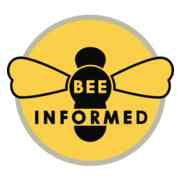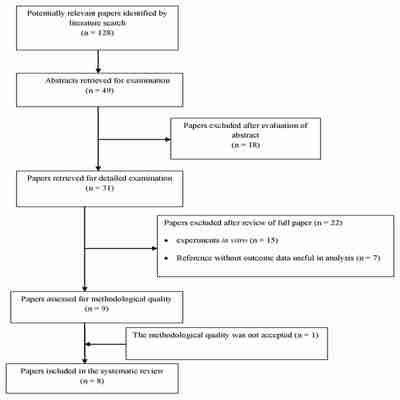Propolis and human health – Bee Informed Partnership
Poor Mike isn’t feeling so well this week. He likely has a cold. But on the positive side he can turn to our beloved bees for a bit of help. People all over the world use a substance bees collect to help treat colds, coughs, and general icky-ness: propolis. Some trees and plants excrete resins to protect their growing buds and wounds from getting infected with bacteria, fungi, and viruses and from insect invaders. Bees visit these plants, collect the resins on their back legs like pollen, and bring it back to the hive. Resins are really sticky, so other bees need to help the bee remove the resins from her legs. Bees will only forage for resin in the afternoon when it is warm and the resin more pliable. The bees put the resins, now called propolis, on any uneven surface like the edges of the frames of comb and between boxes. Propolis is sometimes known as the “bane of beekeepers” or “bee glue” since it makes all the frames and boxes stick together and the colony harder to look through. Bees will also use propolis to close up drafty areas or even embalm intruders like mice at are too large to remove.

The tree resins are produced by the tree for their anti-microbial properties. One example of the properties of propolis comes from a student in a medical lab at the University of Minnesota. She was feeling under the weather, so she purchased some propolis at a farmers market. The lab she was in was working on HIV. The idea come to her to plate propolis along with HIV to see if it prevents the growth of the virus. And it did! Propolis is very complex chemically, so someone needs to identify the active chemicals before further research in the medical community can really take off. But Mike Wilson at the U of MN is working on it now.
As a beekeeper, you can take advantage of the anti-microbial properties of propolis by making a tincture to use if you start to feel ill. Of course, there is no guarantee that it will work for you, but I like to use it.
Adapting from Gary Reuter’s recipe:
Step 1: Collect propolis from a colony. Scrape from boxes and frames or use a propolis trap. Avoid collecting bee parts, wood, paint, or other random bits.
Step 2: Collect 100g of propolis (0.22 lbs or 3.5 oz) and 276 ml (9.3 oz or 1 cup+ 3 tbsp) 70% ethyl alcohol (like everclear or grain alcohol). If you plan to take the tincture orally, then use an alcohol that is same to consume. And, obviously, follow the rules when using alcohol.
Step 3: Mix well and keep out of the light. Mix every 3-4 days for 2 weeks.
Step 4: Strain. Coffee filters work best, but I have used clean pantyhose too.
Step 5: Use. It has a pretty strong flavor, so I like to put a few drops in tea or hot water. I also sometimes put it directly in the back of my throat. Use precaution since some people do have allergies to propolis. Also, it is really sticky and hard to clean when spilled. The only thing that seems to get it out is alcohol.
In addition to the tincture, I have seen people just chew/suck on pieces of propolis straight out of the hive. Just watch out for it sticking to your teeth.
Next week: propolis and bee health
Propolis, Bee Propolis, Propolis Extract
Propolis has long been used as a remedy for various types of ailments, and is touted as having anti-inflammatory, anti-bacterial, and anti-viral properties.

Bees use this resin mixture as both a sealant for their hive and as a lining for brood cells (baby bee nurseries) when the queen is ready to lay eggs. The fact that bees use propolis to line brood cells makes a lot of sense considering its anti-bacterial properties; propolis ensures the health of the larvae by creating a sterile environment.
Humans have taken a cue from the bees and have started using propolis to achieve their own health-related goals. Uses of propolis are wide and varied, and include
Treatment for burns and cuts
Remedy for urinary infections
Remedy for dental plaque
Immune system strengthener (propolis attacks harmful bacteria, but not healthy)
Treatment for cold sores, genital herpes and other viruses
Treatment for dermatitis and acne
Relief for sore throats or inflamed tonsils
Preventative treatment to ward off oncoming colds
Treatment for ulcers
Relief for arthritis and other joint pain
We have two types of propolis available here at Honey Pacifica: Propolis Tincture and Propolis Extract. Propolis Extract is 3-5% propolis and the balance is Propylene Glycol and our Propolis Tincture is 65-67% propolis and the balance is a Non-GMO Cane Ethyl Alcohol.
While we offer basic suggestions for uses and amounts, you can consult your physician or local health-food store to learn specific quantities for your body’s unique needs. As with many other types of natural treatments or medications, the more consistently you use propolis the greater its effect will be.
Effectiveness of propolis on oral health: a systematic revie... : JBI Evidence Synthesis
Background

Propolis is a resinous mixture that honey bees collect from tree buds, sap flows, or other botanical sources. It has a long tradition of medical use in many parts of the world and is thought to have several beneficial health properties. The use of propolis mouthrinse or gel as a supplementary intervention for oral health has increased during the last decade in Taiwan, especially for oncology, hospice, and long-term care settings. However, the effect of propolis on oral health is not well understood.
Objectives
The objective of this systematic review was to present the best available evidence regarding the effects of propolis use on oral health, including oral infection, dental plaque and stomatitis.
Inclusion criteria
Types of participants
The review considered all studies that included propolis use in humans, in any setting except for oncology patients.
Types of intervention(s)
The included studies focused on the effects of propolis on oral health. Interventions included propolis mouthrinse, gel, or capsule. Comparators were placebo, usual care, or other mouth rinse.
Types of studies
Randomized controlled trials and clinical trials of propolis therapy were included in the review.
Types of outcomes
The outcomes that were considered for inclusion were the effects of propolis on oral infection, dental plaque and stomatitis.
Search strategy
Reviewers conducted a systematic search for relevant articles published in English or Chinese between 1969 and 2012 that were indexed in the following databases: Cochrane Database of Systematic Reviews, CINAHL, PubMed, Science Direct, Conference Proceedings, Oral Health Journal Index, and Chinese Electronic Periodical Services.
Methodological quality
Two reviewers independently assessed methodological quality of studies using standardized critical appraisal instruments from the Joanna Briggs Institute Meta Analysis of Statistics Assessment and Review Instrument.
Data collection
Quantitative data was extracted using the standardized data extraction tool from the Joanna Briggs Institute.
Data synthesis
Where possible, data was pooled in a meta-analysis. For studies where methodological heterogeneity was present, findings were presented in narrative form.
Results
Nine trials were included in the review, but only eight trials published from 1997-2011 with a total of 194 participants had extractable data. The result of the meta-analysis indicated that propolis had an effect on reducing dental plaque, but it was not statistically significant. The results were not statistically significant for oral infection or stomatitis. No harmful effects were identified on the outcome measures reported.
Conclusions
Whilst eight suitable randomized controlled trials and clinical trials investigating propolis therapy for oral health were extracted, several were small studies, or were of poor quality. Although there are a number of promising indications, in view of the limited number and quality of studies, and the variation in results between studies, this review highlights the need for further well designed trials so that more robust conclusions may be drawn.
Implications for practice
Due to the small sample sizes of included studies and significant heterogeneity across studies, specific recommendations for practice regarding use of propolis for oral health cannot be made.
Implications for research
In order to draw definitive conclusions regarding the effectiveness of propolis for oral care, more randomized controlled trials are needed.

